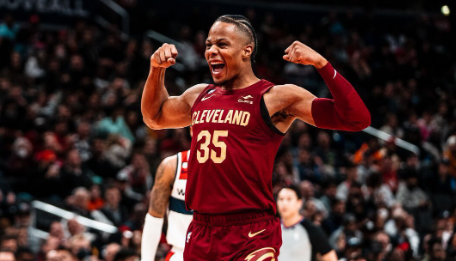
Since appointing Kenny Atkinson as their new head coach, drafting Jaylon Tyson, and re-signing Donovan Mitchell, the Cleveland Cavaliers have had a relatively calm offseason. Despite fans’ desire for big roster changes and new free-agent signings, Cleveland’s limited activity in free agency isn’t due to ignorance, but rather a deliberate approach centered around resolving Isaac Okoro’s situation first.
Just before the start of free agency, Cleveland offered Okoro an $11.8 million qualifying deal, making him a restricted free agent. However, committing to Okoro at this price would strain the Cavaliers’ finances significantly. Negotiating a long-term contract with Okoro is also challenging; although he excels defensively, his offensive skills remain a work in progress after several NBA seasons. This uncertainty leaves Okoro’s future with the team uncertain.
As free agency progresses, other teams may show interest in Okoro, who is among the few restricted free agents still available. Despite the risk of losing him, some league insiders suggest the Cavaliers might prefer a sign-and-trade scenario, potentially signaling Okoro’s departure from Cleveland.
Cavs say goodbye to Isaac Okoro?
For those unfamiliar, a sign-and-trade occurs when a team signs a free agent and then trades them to another team chosen by the player. This tactic allows the player to secure a more favorable contract in terms of salary or length than NBA rules would typically allow for the destination team.
In the case of Isaac Okoro, Cleveland cannot simply sign him and then force a trade to another team. The team he joins must be willing to meet his financial demands and be a preferred destination for him.

Reports suggest that the Detroit Pistons, Brooklyn Nets, and San Antonio Spurs are potential suitors in the Okoro negotiations, indicating potential trade partners for Cleveland.
However, despite interest from these teams, Cleveland may not receive the best possible return in a trade. For instance, the Pistons, who have cap space to sign Okoro directly, might offer draft picks to facilitate a deal.
Alternatively, Cleveland could opt for players instead of picks, potentially acquiring Dorian Finney-Smith from Brooklyn or recently acquired Harrison Barnes from San Antonio.
While such deals may not bring back the flashiest returns, they could provide Cleveland with a more dependable two-way wing player in exchange for losing Okoro’s potential upside. These decisions are crucial for a team like Cleveland, aiming to contend for a championship, even if it means sacrificing a promising young player like Okoro for a marginal improvement.
Leave a Reply